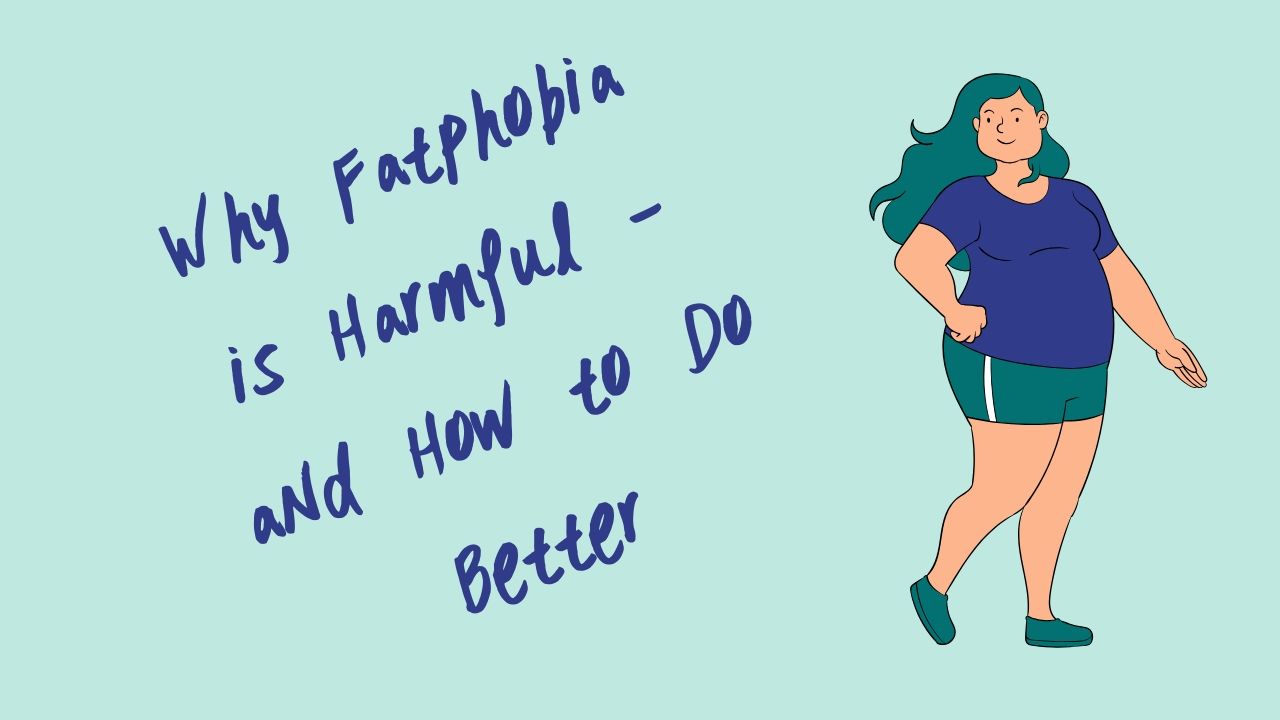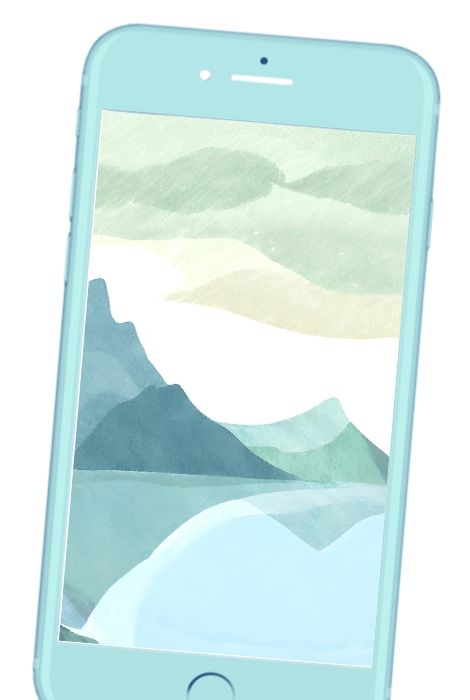Breaking Down Fatphobia: History, Harm & How to Do Better
Jan 20, 2025
(Why We Need to Stop Talking Like “Weight Loss” is a Synonym for “Health” or a Moral Imperative)
 Fatphobia is like that party guest who loudly proclaims, “I’m just concerned about your health,” while double-fisting a margarita and avoiding their own annual check-up. Rooted in fear, ignorance, and systemic bias, fatphobia affects not only individual lives but also the collective social fabric. Let’s dig into why it’s harmful, where it comes from, and what we can do to dismantle it—while sprinkling in some humor and compassion because let’s face it: this is heavy stuff (pun absolutely intended).
Fatphobia is like that party guest who loudly proclaims, “I’m just concerned about your health,” while double-fisting a margarita and avoiding their own annual check-up. Rooted in fear, ignorance, and systemic bias, fatphobia affects not only individual lives but also the collective social fabric. Let’s dig into why it’s harmful, where it comes from, and what we can do to dismantle it—while sprinkling in some humor and compassion because let’s face it: this is heavy stuff (pun absolutely intended).
Fatphobia Harms Physical Health (Ironic, Right?)
Weight Stigma in Healthcare
If you’re in a larger body, walking into a doctor’s office can feel like preparing for battle. Your symptoms—whether it’s a sore throat or a fractured toe—might be dismissed with a casual “You should lose some weight.” Real talk: this bias delays diagnoses, worsens outcomes, and erodes trust in the medical profession. Being healthy doesn’t mean being thin, but try telling that to a BMI chart (a completely useless metric, BTW, that we have known is unethical for decades and still use, why?).
I cannot count how many stories I have heard about doctors telling people that their problems are weight related and that delaying the diagnosis of a serious (and completely not weight related) condition. It’s lazy medicine, period. And (if you are a doctor reading this) it makes you look like an idiot.
No one trusts someone who is obviously biased - even those who the bias favors. If you see someone being dismissed by a doctor (and I have heard it happening in a doctor’s office, heard about it with my clients over and over, and had it happen to me), it has long reaching repercussions. It erodes trust in an already shaky medical system. It makes you wonder about their competence. And if it is a HIPAA violation (which overhearing another patient’s medical consultation IS), it adds another layer of negativity.
Yo-Yo Dieting
Fatphobia fuels the weight-loss industry, which thrives on promoting unsustainable diets. The result? Yo-yo dieting: a cycle that wreaks havoc on metabolism, heart health, and mental well-being. Plot twist: these cycles often leave people heavier than when they started. It’s almost as if dieting doesn’t work…oh wait, it doesn’t. 95% of the time.
Weight loss drugs come and go and come and go again - does no one remember fen-phen? Or Olestra? GLP-1’s like Ozempic and Wegovy may have specific utility - but they are just another weight loss craze, and we have NO IDEA the long term effects taking these drugs might bring about. But the craze for them emphasizes something we all know to be true in our culture - weight loss, youth, and beauty make us take chances because appearance, is more important than anything else about us. Is that the message you want to give yourself or others?
Fatphobia Harms Mental Health (Because Shame is NOT a Wellness Tool)
Low Self-Esteem and Anxiety
Fatphobia teaches us to conflate body size with self-worth. This indoctrination starts young, thanks to media, social pressure, and that one family member who just means well. The mental health toll? Depression, anxiety, and a pervasive feeling that you’ll never be “enough.” There are a lot of ways that we teach shame to kids, and this is one of them. 
Eating Disorders
Fear of fatness is a gateway drug to disordered eating. And it’s not just anorexia and bulimia—binge eating disorder (BED is the most common ED in the U.S.) is fueled by the same societal pressure to fit into a narrow ideal of beauty. Something most people do not think about - every eating disorder involved food restriction, including BED. Think about that messaging for a moment.
Social Exclusion
From bullying to workplace bias to being squished into airplane seats designed for hobbits, fat people are consistently excluded. It’s exhausting, it’s dehumanizing, and it reinforces harmful stereotypes. Why are there so many double standards? So many rules? Santa is OK but Oprah has to diet her entire life to be worthy of our esteem? I am hoping these norms are changing in generations to come, but I believe that fatphobia is far behind misogyny, racism, homophobia, ageism and other types of discrimination - and look where we are with that.
Fatphobia Perpetuates Inequality (Surprise! It’s a Systemic Issue)
Workplace Discrimination
Studies show that fat employees are less likely to be hired, promoted, or paid fairly. It’s like society thinks competence is inversely proportional to waist size—which, spoiler alert, is ridiculous.
Intersectionality
Fatphobia doesn’t exist in a vacuum. It intersects with racism, sexism, and queerphobia, hitting marginalized groups hardest. For example, Black women and queer folks in larger bodies often face compounded discrimination.
Where Does Fatphobia Come From? (Hint: It’s Not Just “Concern for Health”)
Historical Roots
- Colonialism: Western societies associated thinness with “civilization” and fatness with “savagery.” This wasn’t about health; it was about power, control, and oppression.
- Victorian Moralism: In the 19th century, fatness became a “moral failing” tied to laziness and gluttony, while thinness was equated with virtue. Sounds familiar, right?
- Fearing the Black Body by Sabrina Strings, PhD is a great starting point to read about the systematic way this thought process was introduced into American culture.
Diet Culture
- Industrialization: With more access to food, thinness became a status symbol. Think of it as the original humblebrag.
- Weight Loss Industry: Companies weaponized insecurity to sell everything from corsets to cabbage soup diets, creating a multibillion-dollar industry. Diet culture thrives on convincing you that your body is a problem to be solved.
Media and Beauty Standards
- Hollywood: The camera adds ten pounds, they say. Unfortunately, the entertainment industry removes anyone who doesn’t fit the mold.
- Social Media: Filters and influencers amplify unattainable beauty standards, leaving the rest of us wondering why we don’t wake up looking like we live in a Parisian Instagram filter.
Misleading Science
- “Obesity Epidemic” Hysteria: Weight is often overstated as a health risk, while factors like socioeconomic status, stress, and access to care are ignored.
- BMI’s Dubious Origins: Fun fact: BMI wasn’t designed as a health metric. It’s about as reliable for individual health as using a horoscope to plan your financial future. It was developed by a mathematician as a population statistic, and even he said it could not be applied to women or minorities.
Why Fatphobia is Ethically & Socially Wrong
It Dehumanizes People:
Reducing someone to their body size strips them of their humanity. People are more than their measurements—full stop.
It Ignores Body Diversity
Bodies are meant to come in all shapes and sizes. Promoting a single “ideal” body type is exclusionary and ignores basic biology. Check out Poodle Science for a basic overview of this concept.
It Spreads Harmful Myths
Fatphobia perpetuates the idea that fat people are lazy, unhealthy, or morally inferior. These stereotypes are not just wrong—they’re harmful. I don’t know about you, but I have never met anyone who calls themselves “fat” who these stereotypes do justice to.
It Violates Basic Rights
Dignity, respect, and equitable treatment shouldn’t be reserved for people who fit into a certain size of jeans. It’s 2025. Let’s do better.
What Can We Do About Fatphobia? (Spoiler: A Lot)
Educate Yourself
- Read books like Anti-Diet by Christy Harrison or The Body Is Not an Apology by Sonya Renee Taylor.
- Follow activists like Aubrey Gordon (@yrfatfriend) or Virgie Tovar.
- Listen to podcasts (Christy Harrison and Aubrey Gordon both have them)
Challenge Harmful Narratives
- Call out fatphobic jokes. (Yes, even the “harmless” ones.)
- Advocate for policies like HAES® (Health at Every Size).
Reframe Health
- Focus on behaviors—not numbers on a scale. Movement, balanced eating, and stress management are better health indicators.
- Stop conflating thinness with health. It’s lazy and inaccurate.
Practice Self-Compassion
- Recognize and challenge your own internalized fatphobia.
- Celebrate body diversity—yours and everyone else’s.
Fatphobia is harmful not because it’s impolite or uncomfortable, but because it’s rooted in bias, misinformation, and systemic discrimination. It’s time to unlearn what we’ve been taught and embrace a world where bodies—of all sizes—are treated with the respect they deserve. The takeaway? People are more than their bodies, and weight isn’t a moral currency. Let’s start acting like it.
Resources & Links
- The racist history of fatphobia and weight stigma - Within Health
- National Eating Disorders Association (NEDA) Statistics: nationaleatingdisorders.org
- Article on Diet Culture’s Impact: Verywell Mind
- HAES Community Resources - Highlights weight-neutral health practices that align with the anti-diet messaging.
- The Push/Pull of Therapy - Navigating the Gray Areas of Diet Culture & Change - December 2024
- Food Noise - September 2024
- ChatGPT’s Weight Stigma - September 2024
- Embracing Conversations on Weight Stigma - September 2024 WSAW
- Can Dieting Actually Lead to Long-Term Weight Loss? - NYT January 2024
- Problems with BMI - University of Rochester January 2024
- How the Use of BMI Fetishizes White Embodiment and Racializes Fat Phobia - Journal of Ethics, 2023
- Creating an Anti-Diet Culture - June 2022
- Have Our Attempts to Curb Obesity Done More Harm Than Good? - NIH 2020
- Why Diets Do Not Work - Center for Clinical Interventions 2018



